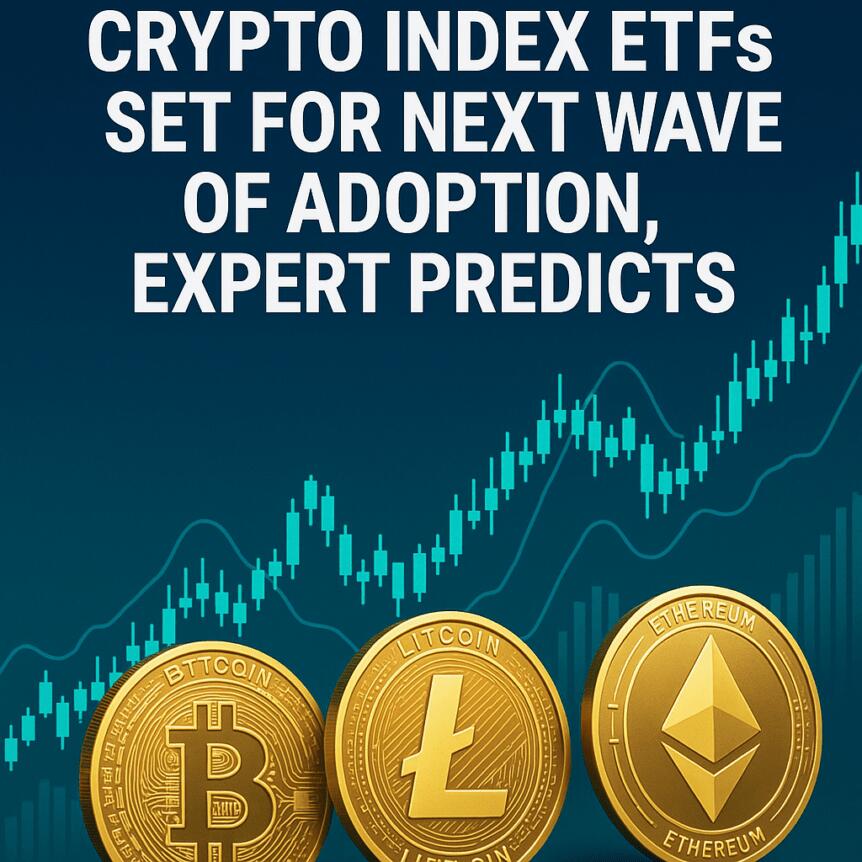- Will Peck, head of digital assets at WisdomTree, foresees a substantial rise in crypto ETF offerings that bundle various cryptocurrencies to meet investor demand.
- Industry experts believe diversified crypto baskets will help new investors gain exposure while reducing risks tied to individual tokens.
- Recent crypto index ETF launches, including those from 21Shares and Hashdex, demonstrate growing market acceptance and regulatory progress under the Investment Company Act of 1940.
- Peck emphasizes that the success of Bitcoin ETFs has exceeded expectations, fueling optimism for future growth and adoption in crypto markets.
- The trend indicates a potential shift in how institutional and retail investors access blockchain-based assets in a regulated environment.
Will Peck, the head of digital assets at WisdomTree, predicts that exchange-traded funds (ETFs) containing a diversified basket of cryptocurrencies will play a pivotal role in the evolution of the digital asset market. Speaking at The Bridge conference in New York City, Peck emphasized that multi-asset crypto ETFs are poised to address growing investor demand for accessible and risk-mitigated crypto exposure.
“It does seem like that’s going to be one of the next waves of adoption,” Peck said. “It solves a need, I think.”
While many new investors recognize Bitcoin (BTC), they often struggle to evaluate the next set of promising assets. A diversified index ETF helps provide broader exposure to the sector while mitigating the “idiosyncratic risk” associated with individual tokens.
Will Peck emphasizes tech-driven value of crypto ETFs
Peck notes that, despite often being classified as an asset class, cryptocurrencies are fundamentally a technology with unique underlying growth drivers. Though prices of tokens may be correlated, their technological foundations and potential for innovation are diverse, highlighting the importance of multi-asset investment strategies.
This year has seen several notable crypto index ETFs launch, with 21Shares recently introducing two ETFs regulated under the Investment Company Act of 1940. Additionally, Hashdex expanded its Crypto Index US ETF to include XRP, Solana (SOL), and Stellar (XLM)—a move facilitated by new SEC listing standards.
Peck acknowledged that predicting the pace of broader crypto ETF adoption remains challenging. Nonetheless, he sees a clear utility in these products, believing their popularity will grow as investors seek straightforward avenues to access crypto markets.
He anticipates a surge of new crypto ETF launches, driven by issuers vying for early market share. This competitive environment could shift perceptions, making ETFs less about endorsement of specific tokens and more about portfolio diversification and accessibility.
Bitcoin ETFs surpass expectations, institutional acceptance broadens
Peck shared that the success of spot Bitcoin ETFs, launched in January 2024, has exceeded his initial expectations. These products have become some of the most competitive within the U.S. ETF market, attracting significant investor interest.
Since their debut, Bitcoin ETF inflows have approached $59 billion, marking a milestone in institutional adoption and mainstream acceptance of digital assets within regulated frameworks.
“It’s remarkable how big the Bitcoin ETF category has become,” Peck said, underscoring the rapid growth and evolving landscape of crypto investment products in today’s financial markets.







